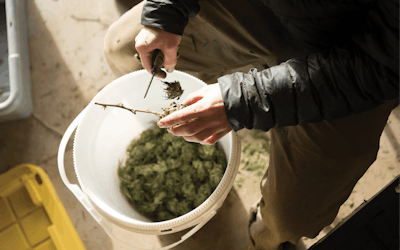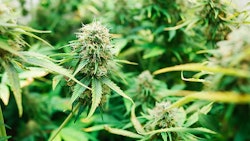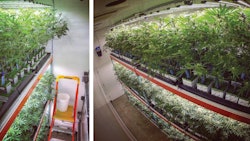
This article originally appeared in the June 2018 print issue of Cannabis Business Times. To subscribe, click here.
Sky Pinnick, CEO of Phantom Farms in Bend, Ore., is a big fan of kombucha: the healthy, fermented tea trending across the nation. So, he was pleased to discover from his cultivation team that his farm was brewing it. The only problem? It wasn’t for employees. Turns out, Pinnick’s cannabis plants love kombucha, too. This tea was for them.
The kombucha is part of the plants’ nutrient regimen and represents just one way the adult-use-cannabis-focused indoor/outdoor farm (which boasts 125,000 square feet of canopy space) is making its operations as sustainable as possible.
Here, Pinnick and Phantom Farms Master Grower Eddie Funtanellas share other sustainability methods the farm employs, such as its use of volcanic filtered water, why its branding focuses heavily on the farm’s staff and how the 10-year-old operation has been able to navigate Oregon’s volatile market.
Scott Guthrie: Your cultivation operation is Clean Green Certified. What does that mean for your business and what was the certification process?
Sky Pinnick: You apply [for certification], and there are certain parameters you have to meet. Then [Clean Green Certified] comes and inspects the farm. At our outdoor farm, they do soil tests, and then we give them all our inputs that we’re using. They check to make sure they are all on their list. They come every year and do an inspection.
Eddie Funtanellas: What’s cool about it is, within cannabis, there isn’t a certification for the use of the word “organic” because it’s a federally regulated term. Clean Green Certification [is] on par with organic certification, so when you see “Clean Green” attached to cannabis, you can understand that the cultivation processes and the inputs and all of the pieces combined are in alignment with the organic practices that you would see on an apple that you would buy at the grocery store.
To read the full article in the June 2018 issue of Cannabis Business Times, click here.
Top photo courtesy of Phantom Farms


























